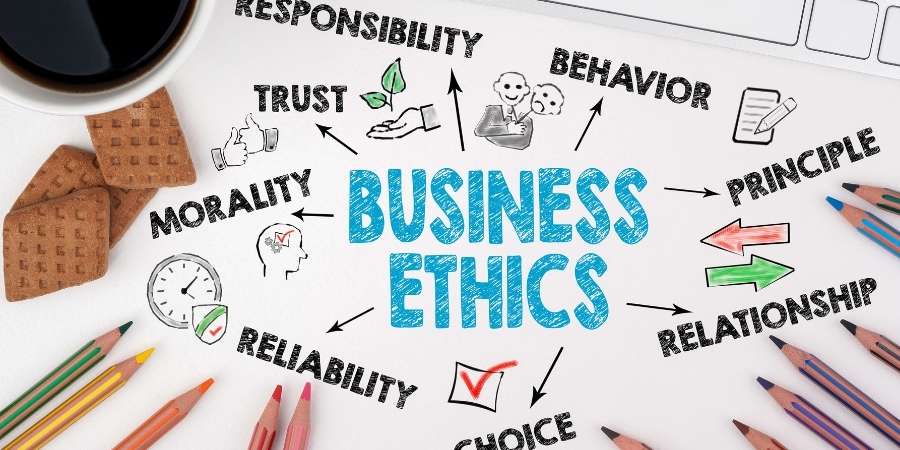Business ethics is a set of values and principles that guide the decisions and actions of an organization. Without them, businesses are left to be ruled by their self-interests without consideration for the communities they affect. It’s vital to have ethical standards to maintain trust and relationships with customers, employees, partners, suppliers, and the community.
Here we’ll discuss steps that can be taken to improve ethics.

Create a Plan to Implement Ethics
Setting ethical standards is not enough to create an ethical organization. It’s an essential step forward, but there is still so much more to be done. The business must first decide on how they want to implement those standards. This step needs to be a group effort between all organization members and should include fostering a culture of patience and understanding going into the process. Create a plan in which ethics will be taught, practiced, and made part of everyday actions and procedures.
As it is hard to implement a plan that’s hard enough, it may seem easier to try implementing some vague notion of doing the right thing. But what improves is its level of specificity. For example, suppose employees want to improve ethical standards. In that case, they can identify a set of values, make a list of employees who violated them, and design plans to correct them.
Follow Through with Action Plans
Implementing and following through with an action plan is the second step. Understand your goals, identify the steps and deadlines needed to succeed, and improve. When you have an action plan, it will be easier to measure whether or not you’re doing a good job.
Once a plan is created, it is time to put that plan into action. This includes enforcing the Code of Ethics and Standard Operating Procedures, including ethical consequences when they are breached. The most important part of this step is not to stop drafting the Code of Ethics and Standard Operating Procedures and review them regularly. In addition, the management team needs to be supportive of the changes that are taking place. This can’t be done individually; it must involve everyone in the organization.
Ethics Is Part of Organizational Culture
It is vital to foster an environment that embraces ethics and not just let it be a policy the employees follow. As business becomes more global, there are many examples of how cultures differ and how companies approach ethical standards.
Employees must understand the value of their actions and recognize when ethical standards are being broken. Management needs to take action immediately instead of ignoring unethical behavior when it happens.

Engage With Your Employees and Customers
A recent poll of Americans found that 38% of employees have been asked to compromise ethical standards at work, and more than 37% have done something for which they felt guilty. If a business wants to improve its ethical standards, it needs to engage in conversations with its employees and customers about its visions for the organization and the future.
The management team needs to show that they are listening by taking action on their suggestions. It’s also essential to have regular meetings with employees and customers to discuss their concerns and understand how they want to be treated.
It’s easy to get caught up in the daily tension of running a business, but being dishonest is the quickest way to lose your employees and customers. Don’t keep problems or issues unresolved for too long. Be open about what’s going on in the company, even if it is not good news.
Use Technology to Monitor Behavior
With technology at our disposal more than ever, it’s easy to get distracted and overlook ethical issues. With the right software and programs, businesses can know exactly what their employees regularly do. This will be an essential tool in assisting the organization with improving ethical standards.
Social media has changed the way people interact with businesses. It has become a tool for ensuring ethical standards are upheld by showing what’s happening in the field. It can be used to communicate with employees, customers, and other stakeholders. It’s essential to monitor what is being expressed online and address it when signs of unethical behavior occur.
Business ethics are not just a set of rules and regulations. They are an integral part of the organization’s culture. It is vital to have an open and honest dialogue with employees, customers, partners, and suppliers about what ethical standards should be upheld. While it seems daunting, it can be accomplished by creating clear goals for moral improvement and setting realistic time frames for completion.
